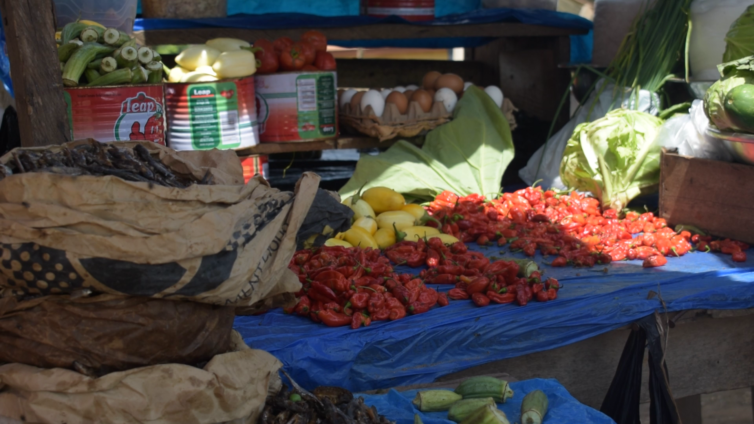Former Director of Operations at ESOKO, Nana Okyir Baidoo, has called on the government to revisit and intensify its Planting for Food and Job (PFJ) policy to enhance food production in the country.
According to him, the PFJ has the potential to fully eradicate Ghana’s food insecurity and prevent future food inflations as is being experienced now.
Speaking on JoyNews’ PM Express, the Agric Analyst said the PFJ should be the annual agricultural sector policy if the country intends to have enough locally grown food to sustain itself.
“So I’ll take you to 2019 where the PFJ programme was in full swing. So in 2019 because of the investments that was made through the PFJ programme we achieved record outputs for a lot of the staples that we eat. So for things like corn, rice, soya bean, production increased by about 53%, 42% etc. and the PFJ, I believe, should not be a one off thing.
“That should be our annual agricultural sector policy. Now if we did that and productivity consistently increased, it means that even in the event where other things are going up, at least we will have enough food to sustain ourselves,” he said.
He further pointed out that while Ghanaians currently spend a very large chunk of their monthly expenses on food, increasing food production could reduce the percentage spent on food thus allowing for monies to be spent on other pressing needs.
“So in the US, food is available through imports or local production. The average US person spends 10% of their budget on food. Let’s say US is advanced, let’s use Brazil. In Brazil, the average person spends 14% of their income on food, but in Ghana, if you earn 700 cedis a month, which is double the national minimum wage, and you spend 200 cedis a month on food, even that’s very conservative, people spend 20 cedis a day, so it means that the percentage you’re spending on food is a lot higher than it should be which will actually impact on what you have to spend on other things.
“But if we had larger production and food was cheaper and you could spend less on food and worry about other things, then we wouldn’t need to increase especially food prices this much. That will bring down food inflation,” he said.
He added that “That goes a long way to affect other things but of course, the gap between wholesale prices of food and what we find on the market is between 22 to 60% margin. So there’s a lot of things which go in there which we need to address. But at least at the production level we would have made some progress.”
Latest Stories
-
Expansion Drive: Takoradi Technical University increases faculties
4 hours -
SHS heads demand payment of outstanding funds before reopening of schools
4 hours -
We thank God for the 2024 general elections – Akufo-Addo
4 hours -
Coconut Grove Beach Resort marks 30 years of excellence with memorable 9 lessons & carols service
5 hours -
WAFU B U-17 Girls’ Cup: Black Maidens beat Nigeria on penalties to win inaugral tournament
5 hours -
Real Madrid beat Sevilla to keep pressure on leaders Atletico
6 hours -
Liverpool put six past Spurs to go four points clear
6 hours -
Manchester United lose 3-0 at home to Bournemouth yet again
7 hours -
CHAN 2024Q: ‘It’s still an open game’ – Didi on Ghana’s draw with Nigeria
7 hours -
CHAN 2024Q: Ghana’s Black Galaxies held by Nigeria in first-leg tie
8 hours -
Dr Nduom hopeful defunct GN bank will be restored under Mahama administration
8 hours -
Bridget Bonnie celebrates NDC Victory, champions hope for women and youth
8 hours -
Shamima Muslim urges youth to lead Ghana’s renewal at 18Plus4NDC anniversary
9 hours -
Akufo-Addo condemns post-election violence, blames NDC
9 hours -
DAMC, Free Food Company, to distribute 10,000 packs of food to street kids
11 hours

